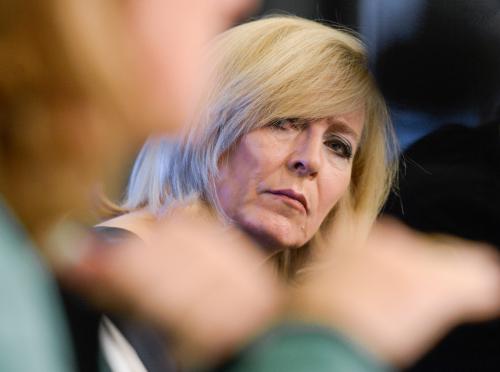
An inquiry by European Ombudsman Emily O’Reilly has found that the European Commission should have concluded an updated sustainability impact assessment before signing the EU-Mercosur trade deal. But will this be enough to stop national parliaments from ratifying the deal? Hans Wetzels reports.
Behind closed doors the European Commission (EC) has been negotiating a massive trade deal with four South American countries for decades. A political accord was finally reached in 2019 – despite ongoing concerns for farmers and the environment. An inquiry by European Ombudsman Emily O’Reilly has now found that the EC should have concluded an updated sustainability impact assessment (SIA) before signing a deal with the trade block Mercado Común del Sur (Mercosur – Argentina, Paraguay, Uruguay and Brazil). The Ombudsman also urged the Commission that, in future trade negotiations, such assessments be finished ahead reaching any final agreement.
‘The EU projects its values through its trade deals. Concluding a trade agreement before its potential impact has been fully assessed risks undermining those values and the public’s ability to debate the merits of the deal. It also risks weakening European and national parliaments’ ability to comprehensively debate the trade agreement,’ O’Reilly has stated in a press release dated March 19.
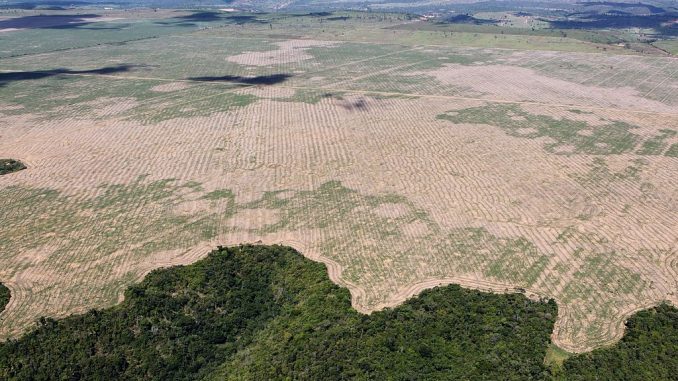
Controversial
Among European farmers, the EU-Mercosur trade agreement has been controversial since negotiations first began in 1999. While the European agricultural sector is under increasing pressure to produce more sustainably, in 2016 alone the Brazilian livestock industry cleared an area of primeval forests the size of Switzerland. Livestock farming in Brazil accounts for eighty percent of all deforestation in the country, and during multiple harbor inspections meats bound for export were found to be rotten, injected with potato-paste to increase weight or infected with salmonella.
The Ombudsman inquiry followed up on a complaint by five civil society organisations, who suspected that the EC conducted the most recent negotiation cycle without an updated assessment of the potential economic, social, human rights and environmental impacts. ‘The EU-Mercosur trade deal could have profound implications, positive and negative, for both sides. The European Commission should have been in a position to demonstrate that it had taken the potential impact on the environment and other issues fully into account before the deal was reached,’ O’Reilly has said. ‘Not finalising the necessary assessment leaves the EU open to criticism that it is not taking seriously all concerns raised and this may affect how the deal is perceived at a point when it needs to be ratified by the European Parliament and in all Member States.’
You are currently viewing a placeholder content from Default. To access the actual content, click the button below. Please note that doing so will share data with third-party providers.
Wishful thinking
While EU farmers organisation Copa-Cogeca has been fighting tooth and nail to prevent the trade deal from ever being signed, the landmark trade deal has also caught significant fallout in the EU Parliament. In a string of letters sent during the last months of 2018 and early 2019, several parliamentarian groups directly urged the European Commission to immediately stop negotiations with Mercosur.
‘We fully agree with the Ombudsman that the delay of this impact analysis was a matter of severe maladministration,’ Kathleen van Brempt of the parliamentarian S&D-group responds. ‘The EU-Mercosur deal covers a total of 720 million people. It’s nothing short of hallucinatory that negotiations have been taking place without decent projections about how this might impact employment in several sectors, human rights and climate change. Furthermore, the deforestation chapter was one of the last elements to be finalized in the SIA and only after harsh criticism from the parliament regarding the flawed analyses up until then.’
Even now the SIA is not sufficiently critical of the trade accord, according to Van Brempt: ‘The impact assessment says that there is no proof of any possible negative impacts this deal might have on deforestation. But if you look further, you see that the researchers could only come to this conclusion by taking possible future efficiency gains in Brazilian livestock farming into account. It doesn’t get more crazy than that. Scientific studies shouldn’t be about wishful thinking but about the actual realities on the ground.’
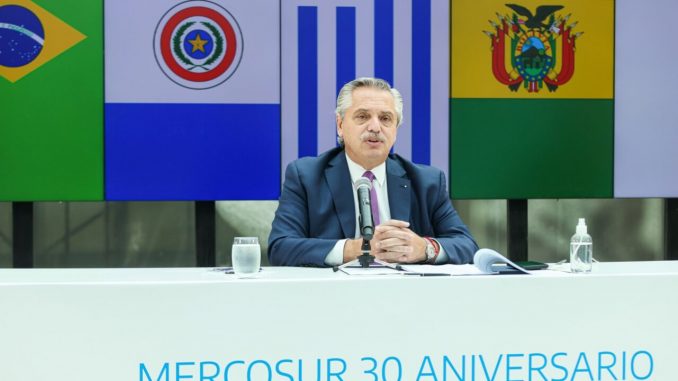
Political will
According to the news website Politico, the Argentinian government has in the meantime come up with a plan to save the embattled trade deal. Buenos Aires proposes to ramp up environmental protections in South America – passing on the costs by making the EU draft an additional declaration that would commit them to further actions for protecting the Amazon rainforest.
While the EU-Mercosur deal has yet to be ratified by national parliaments across the EU, Van Brempt does not expect the Ombudsman inquiry to prove fatal for the controversial accord. ‘The Commission must now show political will to ensure added measures to protect the rainforest and labor rights are guaranteed,’ the Belgian parliamentarian says. ‘Maybe the sustainability chapter could be strengthened with a protocol introducing sanctions for noncompliance. But I don’t think this inquiry will directly affect the talks between both blocs, although it might set a precedent for future negotiations.’
More on trade deals
Brussels | Farmers, Environmentalists tackle EU-Mercosur Deal
Part 2 EU-Mercosur Trade Deal | A Road to Nowhere for Farmers?
Post-Brexit Food, Farming and Fair Trade | Migration and Trade
Agroecology in Mexico | Building Alternatives for Food Systems & Trade



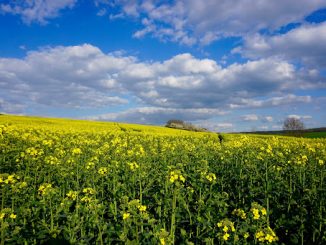

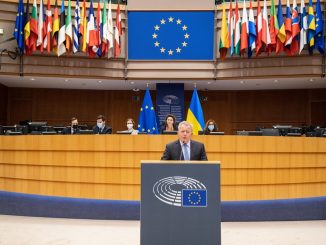
2 Trackbacks / Pingbacks
Comments are closed.